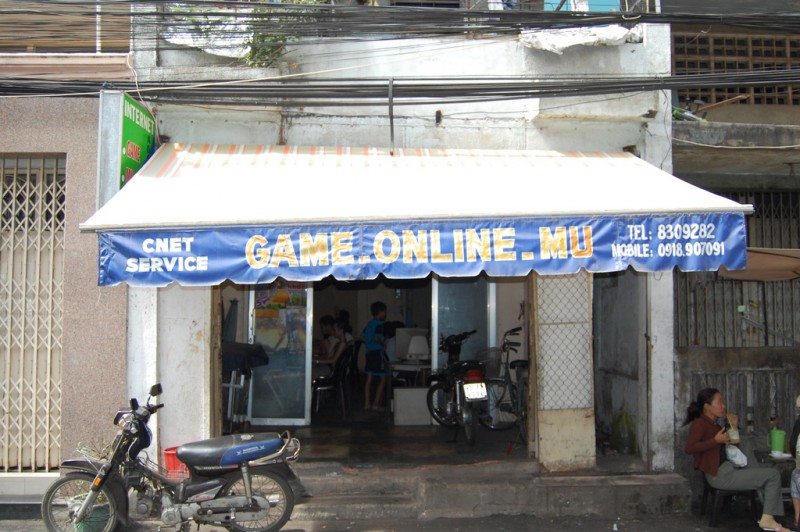When Vietnam passed Decree 72 last year, slapping new restrictions on how Internet users can share information online, the government promptly caught heat from human rights and media groups for undermining free speech. But instead of heeding these calls to review or repeal Decree 72, Vietnam has passed two more Internet-related decrees that imposed stricter regulations on tech companies, Internet users, and online transactions.
Several new requirements for general information websites and social networks were issued on Oct. 2, 2014, in Circular No. 09/2014/TT-BTTTT, a document that articulates how the government should implement provisions of Decree 72 pertaining to the regulation of “compiled information” or the sharing of online news information.
Meanwhile, a proposed Information Technology (IT) Services decree has already undergone several revisions and is expected to be signed by the prime minister before the end of the year. The Asia Internet Coalition (AIC), whose members include top tech companies like Google, Facebook, eBay, and Yahoo, has expressed concern over numerous “unnecessary and vague” provisions in the draft IT Services decree.
Circular 09: “Tightening management of social networks”
When the online newspaper of the Vietnamese government reported the implementation of Circular 09, it described the new measure as “tightening [the] management of social networks.” Indeed, it features new requirements for licensing or registration of websites and social networks. These companies are obligated to fulfill the following requirements:
- The person or deputy responsible for the website or enterprise should have a university or higher degree;
- The website should have a “regime for elimination of incorrect contents within three hours from its detection or the request of a competent authority in the form of email, text or phone.”
- “Social networks are required to have an agreement on provision and use of social network service with users, and ensure the users accept such agreement before using the social network”;
- “Users of social network services are required to confirm registration or changes of personal information by receiving messages on their phone or email”;
- “The character string of a domain name can’t be similar or identical to the name of a press agency if it is not such press agency.”
The Vietnam News Biz Hub also added that the decree requires news aggregation websites to develop “a process of public information management that defines its news sources, and must manage and check all kinds of information before and after they publish it.”
The Vietnamese government has consistently blamed social networks in the past for spreading false information that caused panic, tension, and disunity in the country. But through Decree 72 and now Circular 09, the government believes it has already enacted new regulations that will provide authorities easier access and mandate to block and remove “unwanted” online content with the help of website and social media administrators.
Proposed IT Services Decree: Necessary Regulation or Excessive Control?
Through a letter submitted to Vietnam’s Ministry of Information and Communications (MIC) last June 20, the AIC called for the repeal and reformulation of many provisions in the draft IT Services Decree. This suggests that the government conducted some form of consultation on the matter, as the AIC sent a new letter on Oct. 8, reiterating its position that some of the provisions in the edited draft are still “unclear and unnecessary.”
Ostensibly, the draft requires all IT companies to register with the government, and enumerates several obligations, standards, and commitments that registered companies must follow.
The AIC believes that many of the proposed rules would be burdensome and even redundant:
Over-regulation will challenge the fundamental innovative and fast-moving nature of the technology sector. We do not think that a permission-based approach to regulation is the best structure. We would recommend industry self-regulation that is more consistent with international best practices. The current approach risks creating uncertainty within the industry… It would create a significant barrier to doing business in Vietnam.
The network highlighted Article 14 which specifies that foreign tech companies:
shall have a legitimate representing organization or individual in Vietnam to resolve, on its behalf, relevant issues and to be responsible fulfilling obligations such as tax, fees, charges and other related duties.
AIC described this item as “unique” among ASEAN (Association of Southeast Asian Nations) countries, and noted that it has “created concern for companies due to the lack of detail on expectations of local legal representatives.” It added that it also violates Vietnam’s trade commitments. And it warned that registration and other licensing rules could create an “extra layer [that] could lead to delays and miscommunications.”
If passed, the AIC worries that the decree could discourage startups and tech companies from investing or increasing their presence in Vietnam. But the government insists it is only seeking to protect Internet users and consumers.
Vietnam should also rethink some of its Internet-related laws that restrict free speech and activities of Internet users within the context of global human rights norms to which it is party. At the very least, more consultations should be conducted before before the decree moves any further in the legislative process.




